The views expressed in our content reflect individual perspectives and do not represent the authoritative views of the Baha'i Faith.
When Baha’u’llah described “the prevailing order” of the world as “lamentably defective,” what was he referring to? How do the Baha’i teachings explain that startling statement?
Baha’u’llah, the prophet and founder of the Baha’i Faith, proclaimed in clear and unmistakable language, to the kings and rulers of the world, to its religious leaders, and to humanity in general, that the long-promised age of world unity and peace had at last dawned.
He also proclaimed that the prevailing order, the chaotic and antiquated organizational structure of hundreds of competing and conflicting sovereign states, would inevitably evolve into federalized units of a single democratically-elected global commonwealth:
The Great Being, wishing to reveal the prerequisites of the peace and tranquillity of the world and the advancement of its peoples, hath written: The time must come when the imperative necessity for the holding of a vast, an all-embracing assemblage of men will be universally realized. The rulers and kings of the earth must needs attend it, and, participating in its deliberations, must consider such ways and means as will lay the foundations of the world’s Great Peace amongst men. Such a peace demandeth that the Great Powers should resolve, for the sake of the tranquillity of the peoples of the earth, to be fully reconciled among themselves. Should any king take up arms against another, all should unitedly arise and prevent him. If this be done, the nations of the world will no longer require any armaments, except for the purpose of preserving the security of their realms and of maintaining internal order within their territories. This will ensure the peace and composure of every people, government and nation.
Baha’is believe that Baha’u’llah, as the bearer of a new message from the Creator, brought that message to transform the world’s antiquated architecture of antagonism between races, nations, and religions. Being a Baha’i means understanding that Baha’u’llah’s revelation created the spirit and form of a destined world order – a new system of peaceful global governance designed to resolve the previously intractable issues facing humanity.
In his book “The World Order of Baha’u’llah”, Shoghi Effendi, the Guardian of the Baha’i Faith, succinctly summarized that new system:
Some form of a world super-state must needs be evolved, in whose favor all the nations of the world will have willingly ceded every claim to make war, certain rights to impose taxation and all rights to maintain armaments, except for purposes of maintaining internal order within their respective dominions. Such a state will have to include within its orbit an international executive adequate to enforce supreme and unchallengeable authority on every recalcitrant member of the commonwealth; a world parliament whose members shall be elected by the people in their respective countries and whose election shall be confirmed by their respective governments; and a supreme tribunal whose judgment will have a binding effect even in such cases where the parties concerned did not voluntarily agree to submit their case to its consideration.
A world super-state, as Baha’is understand it, is inevitable. The natural evolution of human governance, from tribal to local to regional and national, has to eventually become international by necessity — the conditions of the world demand it. During the past two centuries, our planet has transformed from a loose, far-flung collection of disparate cultures and civilizations into an interconnected trans-national neighborhood, which has rendered the old model of national sovereignty obsolete.
The world’s major problems are no longer local or regional — they’re global.
Combating crises like climate change, for example, cannot be confined to one country, or even left to an unenforceable voluntary treaty between nations. Wars, especially the proxy battles now being fought in several places around the world, cannot be stopped without an effective international arbiter. International pandemics require a global approach. The terrible, continuing and even widening gap between the wealthy and the poor has no purely national solution, but must be solved at a global level. The corruption that has become endemic in many nations cannot be effectively dealt with unless a world government outlaws it and effectively enforces that prohibition. This list could go on and on, but the upshot remains simple and obvious — the world’s problems can only be solved by addressing them on a worldwide basis. Abdu’l-Baha made this point clear in many of his talks in America in 1912, including this one:
The world of thought has been regenerated. Sciences of former ages and philosophies of the past are useless today. Present exigencies demand new methods of solution; world problems are without precedent. Old ideas and modes of thought are fast becoming obsolete. Ancient laws and archaic ethical systems will not meet the requirements of modern conditions …
Would the mask of obscurity which beclouded medieval centuries meet the demand for clear-eyed vision and understanding which characterizes the world today? Will the despotism of former governments answer the call for freedom which has risen from the heart of humanity in this cycle of illumination? It is evident that no vital results are now forthcoming from the customs, institutions and standpoints of the past. …
Until all nations and peoples become united by the bonds of the Holy Spirit in this real fraternity, until national and international prejudices are effaced in the reality of this spiritual brotherhood, true progress, prosperity and lasting happiness will not be attained by man. This is the century of new and universal nationhood. Sciences have advanced; industries have progressed; politics have been reformed; liberty has been proclaimed; justice is awakening.


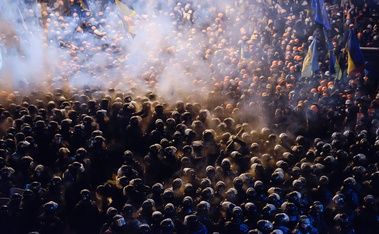


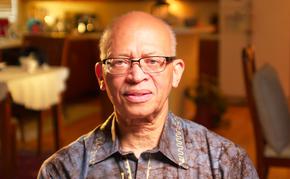
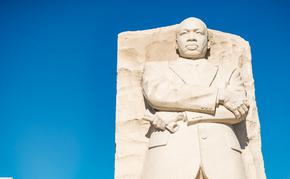

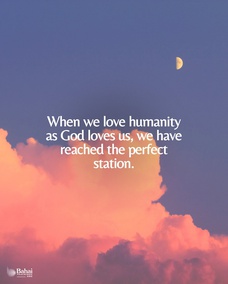


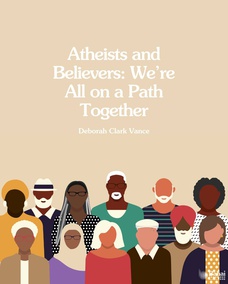

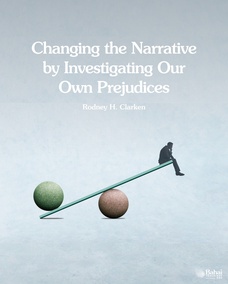


Comments
Sign in or create an account
Continue with Googleor